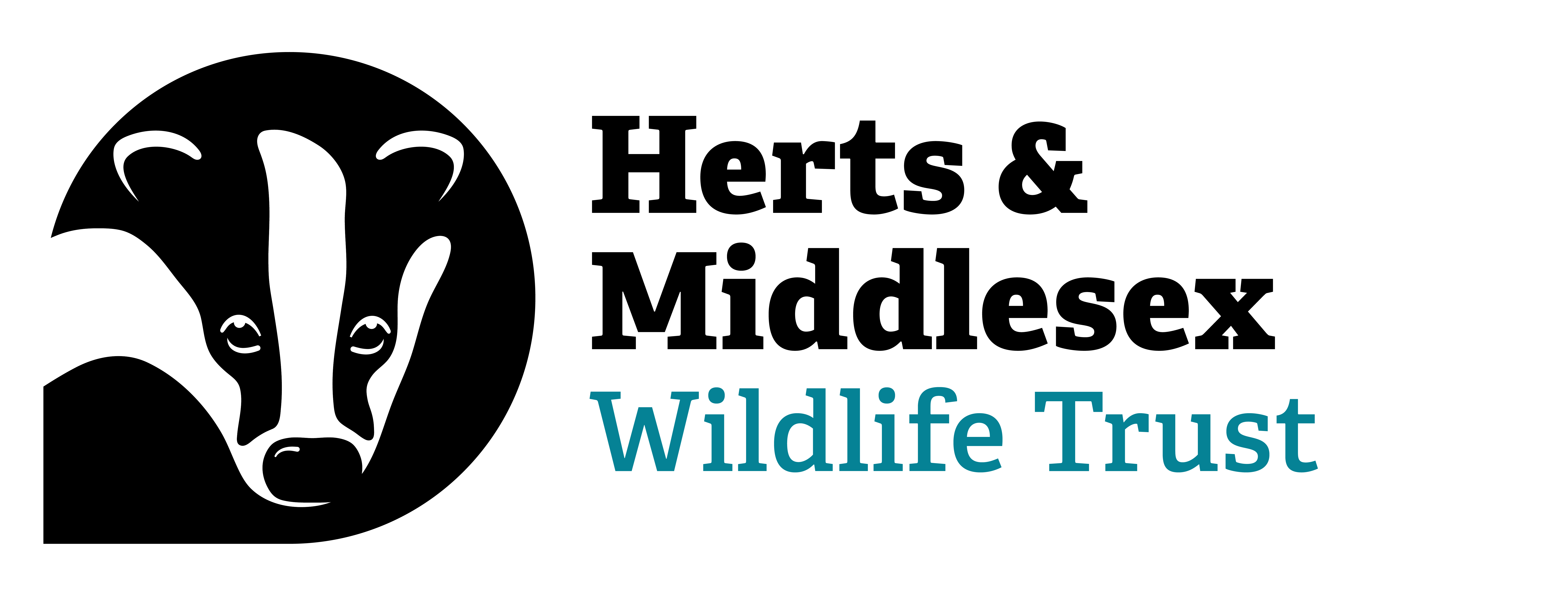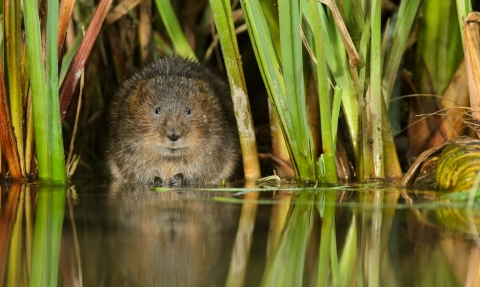
© Terry Whittaker/2020VISION
Water voles in Herts and Middlesex
In the 1970s, water voles were a common sight for passers-by around waterways across the country. Now, only 10% of the former population survives in waterways in the UK. Such drastic declines have come about through habitat loss, water pollution and predation by invasive non-native American mink.
All about water voles
Water voles are chestnut-brown furry mammals that live in waterways such as rivers, streams, ponds, lakes and marshes. They are about the same size as brown rats, although they are distinguishable different from rats by their round chubby faces and bodies and blunted noses.
They were once a common species in England, but are now classified as Britain's fastest declining mammal as over 90% of their populations have been lost since the 1970s. This is largely due to habitat loss and predation by invasive, non-native American mink.
Water voles need dense vegetation along waterways to survive as they eat about 80% of their body weight in food each day, which is mostly made up of wetland plants. They build their burrows along the water's edge and are very neat and tidy, some burrows even have trim lawns at the front.
Visit our water voles species page.
Like beavers, water voles are fantastic eco-engineers as they munch away at vegetation and keep river banks in good condition. Many of the places water voles once thrived in are no longer suitable for them. Intense grazing up to the water's edge, mowing and development has destroyed many habitats where water vole colonies once survived.
But there is a more pressing problem facing water voles: predation by American mink, a non-native mustelid that was bought to the UK and kept in captivity to supply the fur trade. The mink escaped, were released and began spreading throughout the country, rapidly consuming and reducing water vole populations.
Reintroducing water voles in Herts and Middlesex
The Trust want to see water voles in every river in Hertfordshire, and so have been delivering reintroductions of the species over the past decade.
In 2015, the Trust reintroduced 188 to Thorley Wash Nature Reserve in the River Stort. This reintroduction relocated voles from further down the river near Clacton and released them up North to Thorley Wash.
Read more about the Thorley Wash reintroduction here.
In August 2021, the Trust delivered another reintroduction of water voles in partnership with the Ver Valley Society into the River Ver. After a 34 year long absence of water voles, a stretch of the river now has a thriving population of voles after 150 were transported and released in soft release pens along the water's edge.
Read more about the River Ver reintroduction here.
Reintroducing water voles is no mean feat. Considerable planning and preparation go into one reintroduction as steps to ensure the species will settle in the area and survive the harsh realities of a wild world for a water vole, must be followed meticulously.
How you can help water voles in Herts
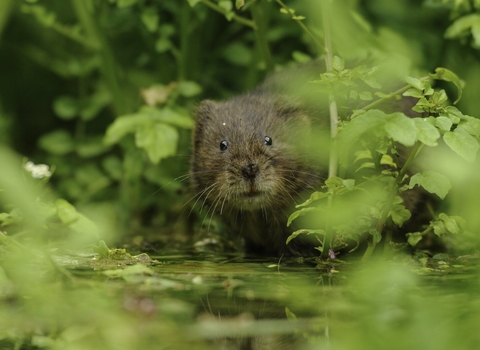
Water vole © Terry Whittaker/2020VISION
Record sightings of water voles
We love to know if local water vole populations are doing well, or moving around the natural corridors in waterways around the county.
If you see water voles around Hertfordshire and Middlesex, send the location with a photo if you have taken one to Josh, our Water Vole Officer at water.vole@hmwt.org.
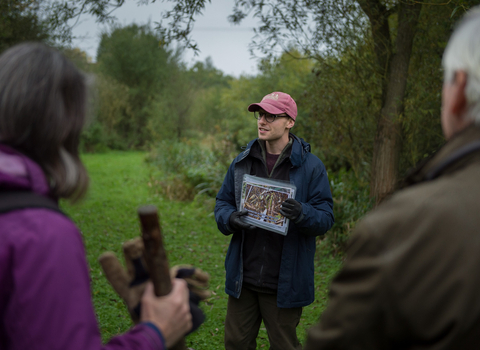
Tom Mason
Train to become a water vole surveyor
Want to get involved with water voles on the ground? Train with our expert Water Vole Officer to track signs of water voles and survey for their presence in areas around Herts and Middlesex.
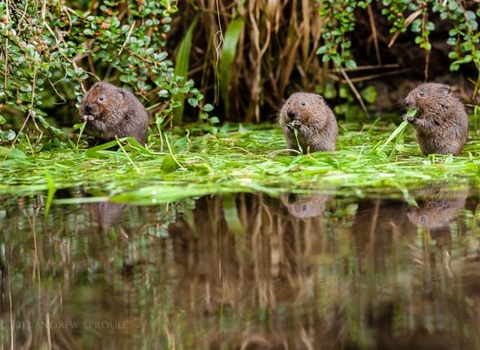
Work with us to reintroduce water voles to the county
Are you a landowner? Get in touch with us about a waterway or wetland site which could be the perfect place for a water vole reintroduction by emailing Josh Kalms, Herts and Middlesex Wildlife Trust Water Vole Officer at water.vole@hmwt.org.
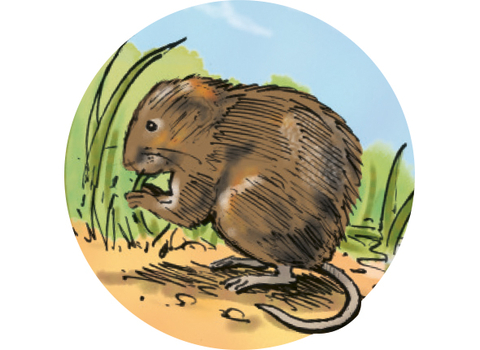
Sponsor a water vole
Our wildlife sponsorships are a great way to support the Trust's work in conserving and restoring wildlife in Herts and Middlesex. Purchase a postal or digital water vole sponsorship through our wildlife shop to help these wonderful mammals and to see more of them in local waterways.
Related news
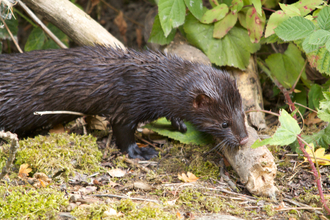
Working Towards a Mink-free GB
Positive trial demonstrates the viability of mink eradication.
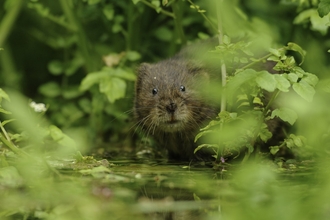
Endangered Water Voles Recovering on the River Beane
Water Voles are increasing their range along the River Beane following 2022 reintroduction.
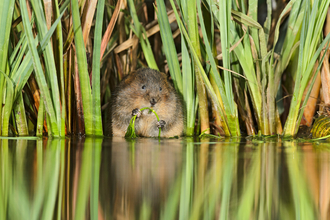
UK’s Fastest Declining Mammal Thriving on the River Ver
Two years on from Water Voles being reintroduced to the River Ver, Herts and Middlesex Wildlife Trust has announced that the…
